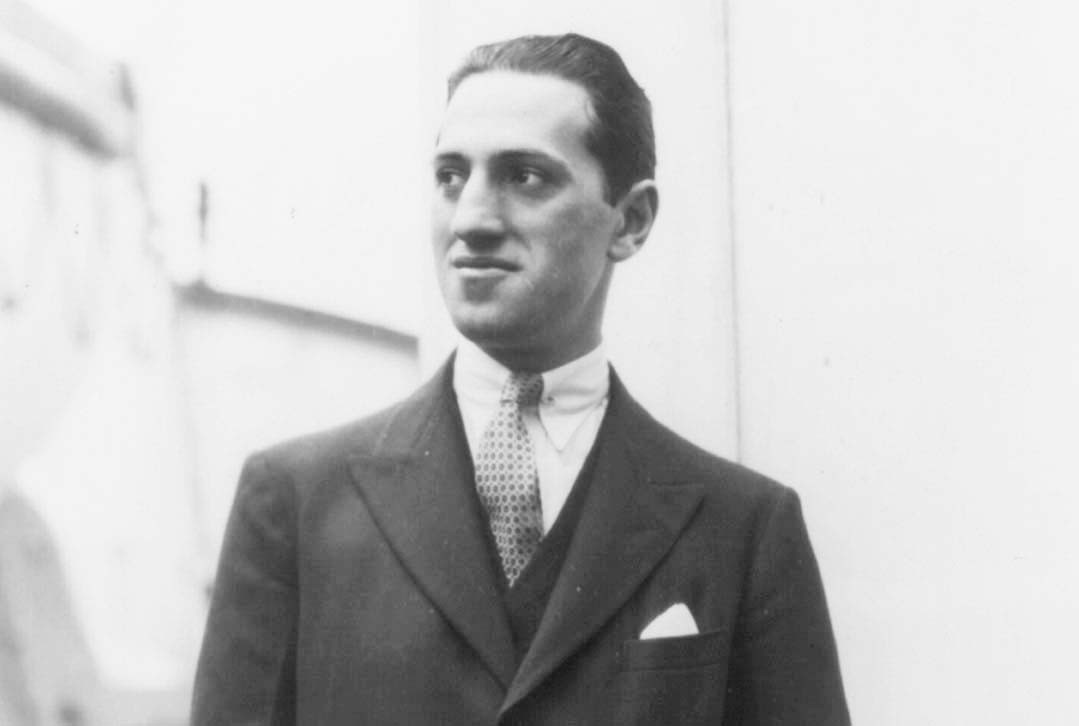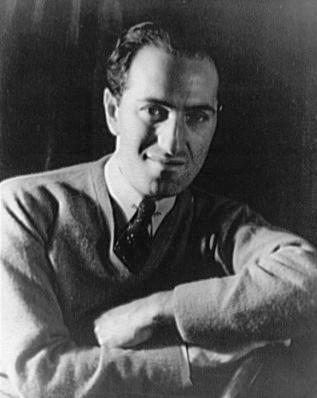
As music scholar Robert Kimball noted to Richard Jerome of People magazine on the hundredth anniversary of the composer's birth, "Gershwin had brought something electrifying to the concert hall. While Gershwin's musicals-many written in collaboration with his brother Ira-packed houses on Broadway for two decades, with works such as Rhapsody in Blue, An American in Paris, and Porgy and Bess, the composer proved he was equally adept at creating pieces for the orchestra hall and opera house. Van Sant writing in the American Record Guide, "so memorable, so catchy and loveable, they survive almost any reasonable treatment." George Gershwin was, as David Schiff wrote in the Atlantic Monthly, "a man without a past created music that comes to life-and demolishes the distinction between serious and trivial." Bridging the worlds of classical music and popular jazz, Gershwin composed some seven hundred popular songs during the short career that preceded his early death, including such famous toe-tapping tunes as "Swanee," "Let's Call the Whole Thing Off," "Someone to Watch over Me," "'S Wonderful," and "I Got Rhythm." Such songs are, according to James A. (With Ira Gershwin) The Songs of George and Ira Gershwin: A Centennial Celebration, two volumes, Warner ( New York, NY), 2001. Cecilia Academy, Rome, Italy, 1937 Academy Award nomination for Best Song (with Ira Gershwin), 1937, for "Let's Call the Whole Thing Off" from Shall We Dance? Writings Kaufman and Morrie Ryskind), 1932, for Of Thee I Sing honorary membership, St. Composer of approximately 700 popular songs, including "Swanee," "The Man I Love," "But Not for Me," "Embraceable You," "A Foggy Day," "I Got Rhythm," "It Ain't Necessarily So," "Let's Call the Whole Thing Off," "Nice Work If You Can Get It," "'S Wonderful," "Someone to Watch over Me," "Summertime," and "They Can't Take That Away from Me." Awards, Honors Film scores include Delicious, 1931 Shall We Dance, 1937 A Damsel in Distress, 1937 Goldwyn Follies, 1938 The Shocking Miss Pilgrim, 1946 and Kiss Me, Stupid, 1964.

Musical scores include The Passing Show, 1916 La La Lucille, 1919 George White Scandals, 1920-24 A Dangerous Maid, 1921 Blue Monday (operetta), 1922 The Rainbow, 1923 Sweet Little Devil, 1924 Primrose, 1924 Lady, Be Good!, 1924 Tell Me More!, 1925 Tip-Toes, 1925 Song of the Flame, 1925 Oh, Kay!, 1926 Funny Face, 1927 Strike up the Band, 1927 (revised 1930) Rosalie, 1928 Treasure Girl, 1928 Show Girl, 1929 Girl Crazy, 1930 Of Thee I Sing, 1931 Pardon My English, 1933 and Let 'Em Eat Cake, 1933. Orchestral and classical works include Rhapsody in Blue, 1924 Concerto in F for Piano, 1925 An American in Paris, 1928 Second Rhapsody, 1931 Cuban Overture, 1932 Variations on I Got Rhythm for Piano and Orchestra, 1934 Porgy and Bess, a folk opera, with libretto by Dubose Heyward and lyrics by Ira Gershwin and Hayward, 1935 and Three Preludes, 1936.

Education: Studied music with Charles Hambitzer, Edward Kilenyi, Rubin Goldmark, Wallingford Reigger, Henry Cowell, and Joseph Schillinger.


Born Jacob Gershvin, September 26, 1898, in Brooklyn, NY son of Moshe (a businessman) and Rose (Bruskin) Gershvin died of a brain tumor, July 11, 1937, in Beverly Hills, CA.


 0 kommentar(er)
0 kommentar(er)
